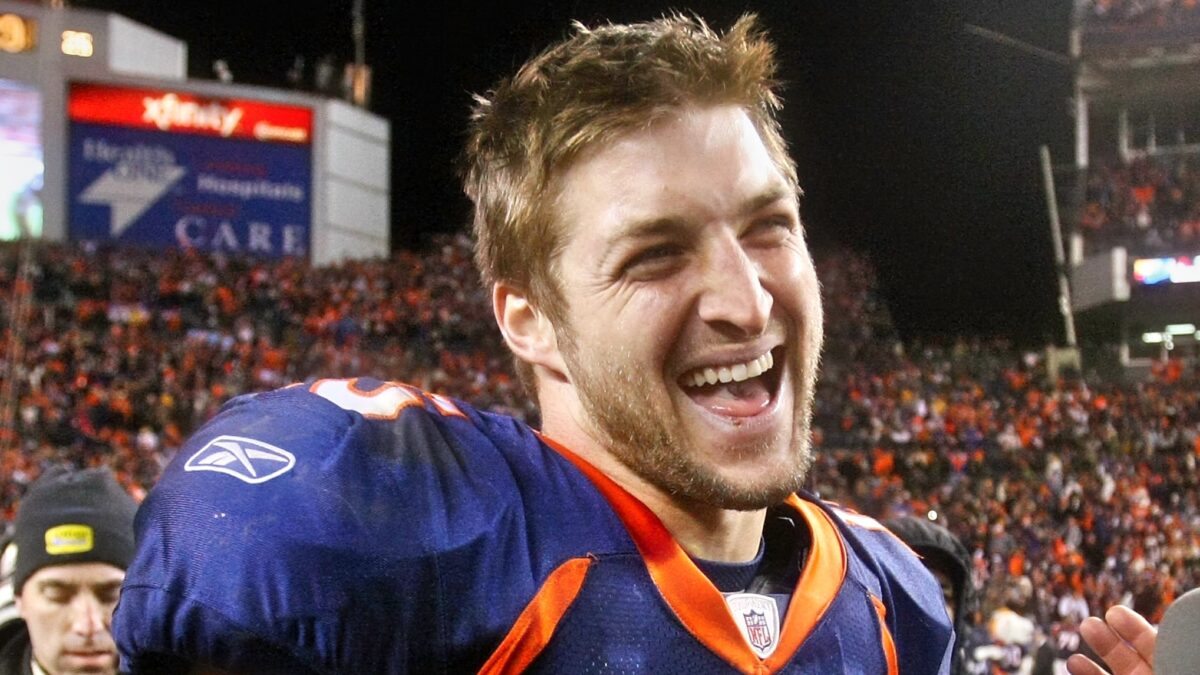
The good’ol ONE-YEAR-WONDERS….
We’ve seen plenty of one-hit wonders throughout the history of the NFL. Sometimes, you can tell when a certain player was a product of pure luck and simply being in the right place at the right time.
But when it comes to quarterbacks, the most important position in football, it usually catches us by surprise when a player is unable to build off a Pro Bowl or MVP-like season.
Let’s dive into the 12 biggest quarterback one-year wonders in NFL history.
12. Tim Tebow
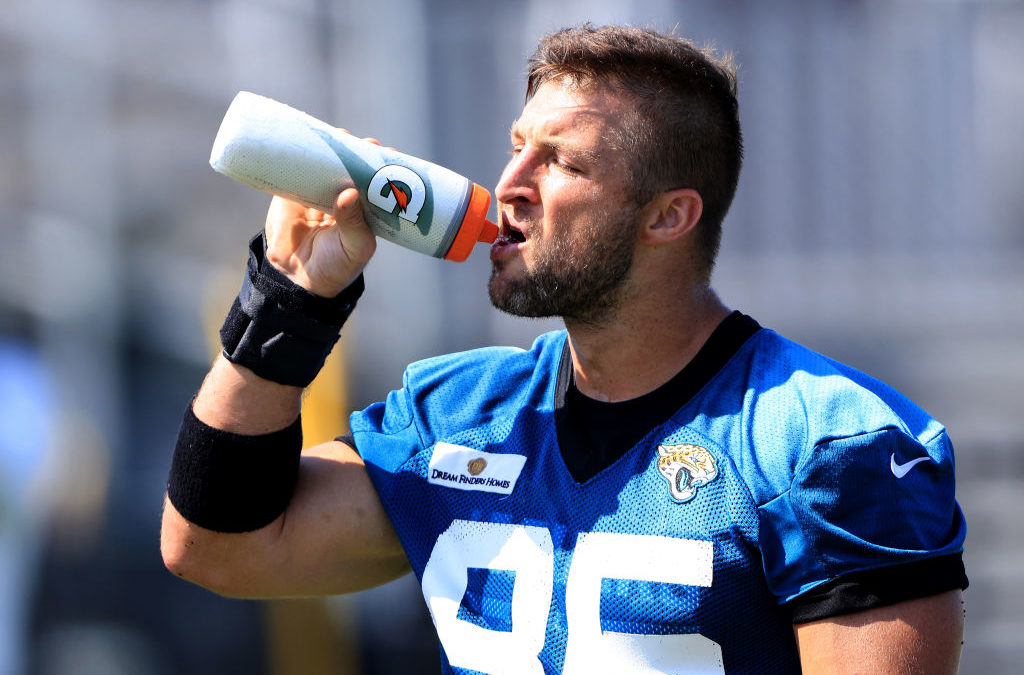
Denver Broncos head coach Josh McDaniels liked Tim Tebow’s skill set, so they drafted the 2007 Heisman Trophy winner with the 25th overall pick in 2010.
Tebow saw a bit of playing time in his rookie year, but he wouldn’t take over for Kyle Orton as the starter until 2011. Orton struggled mightily, and head coach John Fox decided to give Tebow an opportunity.
Click on ‘Follow Us’ and get notified of the most viral NFL stories via Google! Follow Us
And with that, “Tebowmania” was born. Despite lackluster stats, Tebow kept pulling off remarkable comeback victories for Denver. He won seven of 11 starts — which included FIVE fourth quarter comebacks. The Broncos barely won a three-way tiebreak for the AFC West with an 8-and-8 record.
Tebow and the Broncos shocked the Pittsburgh Steelers in overtime of the AFC Wild Card Round, but they were destroyed by the New England Patriots a week later. The Broncos signed Peyton Manning in the ensuing offseason and traded Tebow to the New York Jets.
Tebow backed up Mark Sanchez in 2012, and he only had eight passing attempts that year. Tebow would join the Patriots and Eagles in 2013 and 2015, respectively, but he was released before the start of both regular season campaigns.
Tebow would then embark on a career in minor league baseball, signing with the New York Mets in 2016.
11. Elvis Grbac
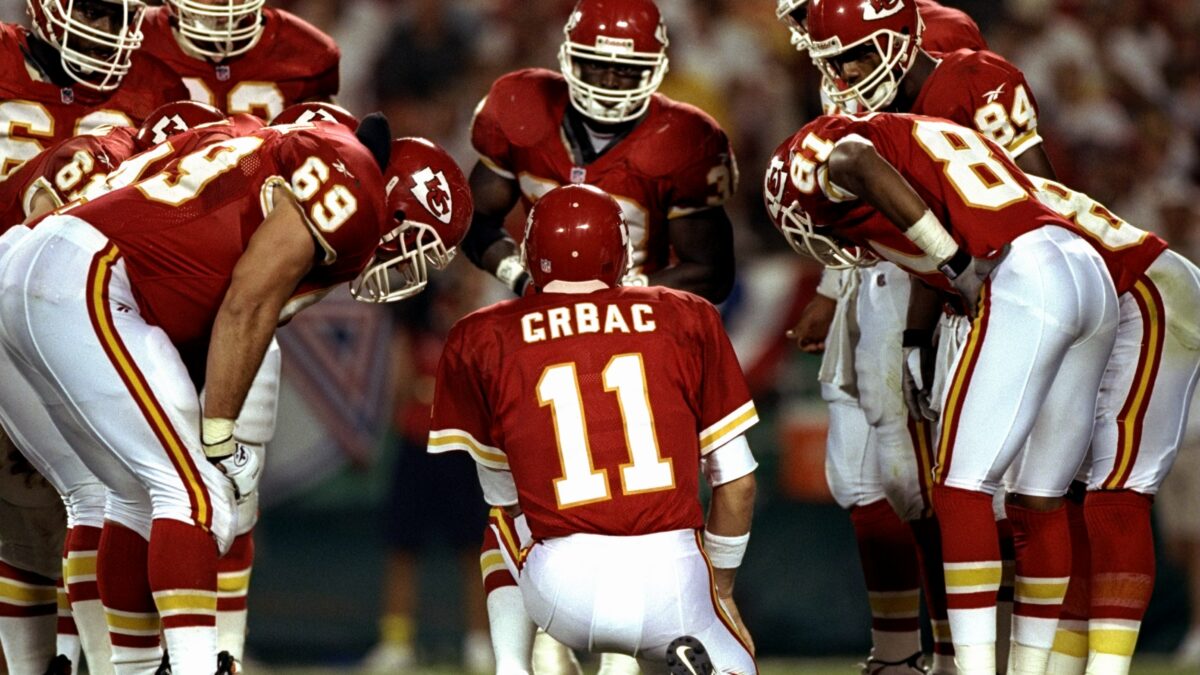
The Michigan product didn’t put up great stats, but he did enough to help the Kansas City Chiefs win 13 games in 1997 — good enough for the top record in the AFC. However, they fell to John Elway and the eventual Super Bowl-winning Broncos in the wild card round.
Grbac enjoyed what appeared to be a breakout year in 2000. He set career-highs in passing yards with 4,169 yards and touchdown passes with 28 — though the Chiefs finished with a mere 7 and 9 record. Still, it was enough for Grbac to earn the lone Pro Bowl selection of his career.
Grbac signed with the Baltimore Ravens in the ensuing offseason, but he struggled throughout the year and wasn’t able to perform well in the playoffs. The Ravens cut Grbac in the offseason, and he wound up retiring…just one year after piecing together a Pro Bowl season. You don’t hear that story too often!
10. Vince Young
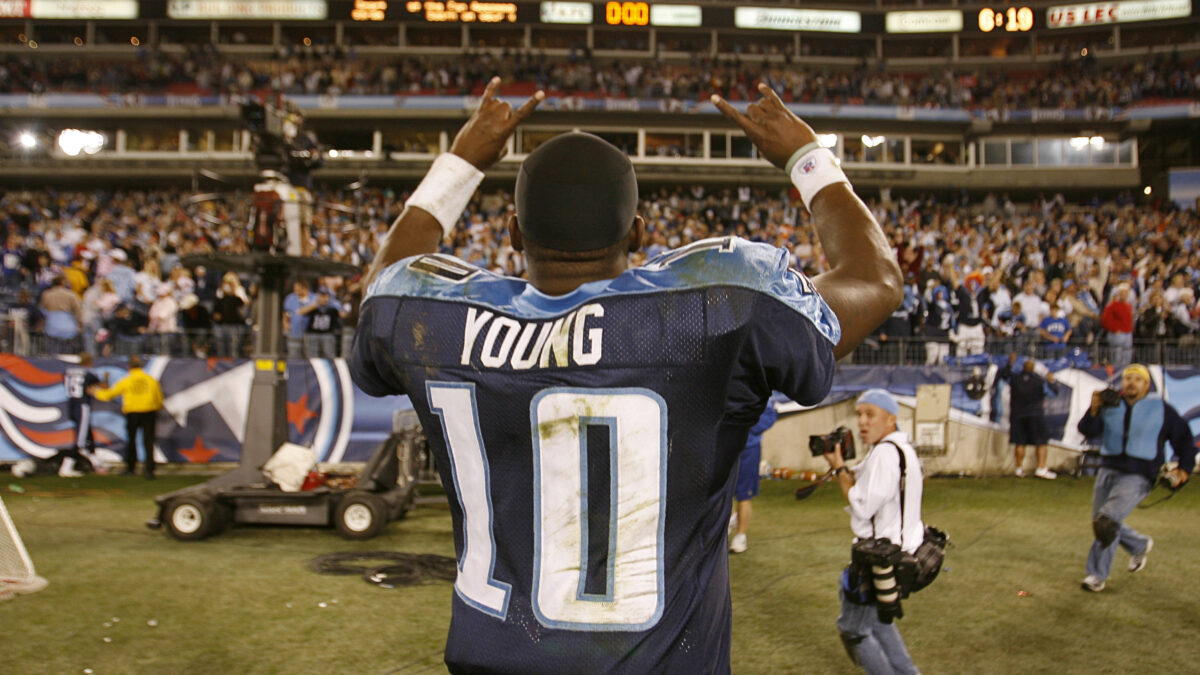
The hype was extremely high on Young, who dominated for the Texas Longhorns. He led them to the 2005 National Championship and won the Maxwell and Manning Awards that same year.
The Tennessee Titans drafted Young with the No. 3 pick in 2006, and he performed pretty well in his rookie year. Young went 8 and 5 as a starter and orchestrated five game-winning drives — despite tossing just 12 touchdowns vs. 13 picks. Still, it was enough for Young to win the Offensive Rookie of the Year Award, plus he earned a Pro Bowl selection.
Young posted very poor stats in his sophomore season, and yet the Titans were able to qualify for the postseason with a 10 and 6 record — though they fell to the San Diego Chargers in the wild card round.
Young was injured early in the 2008 season, and Kerry Collins took over as the starter for the remainder of the year — leading the Titans to the top seed in the AFC.
Young replaced a struggling Collins in the midst of the 2009 season; going 8 and 2 to finish the season on a high note. It was enough for another Pro Bowl selection plus the Comeback Player of the Year Award.
But Young struggled mightily in 2010 and suffered another injury, so the Titans cut ties with him after the season. He spent one year as Michael Vick’s backup in Philadelphia in 2011, but Young never played in the NFL again after that.
Welp, at least he looked like a star in his rookie year!
9. Scott Mitchell
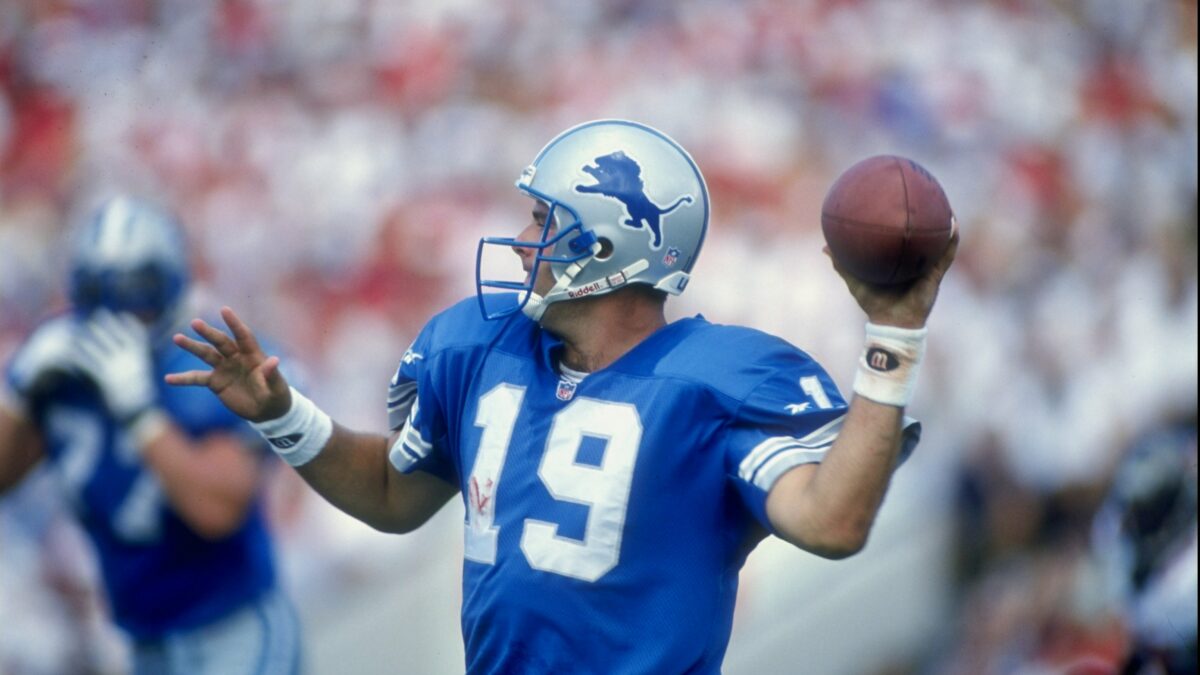
The former Utah quarterback spent his first three NFL seasons as Dan Marino’s backup for the Miami Dolphins. The Detroit Lions signed Mitchell in the 1994 offseason, but the results wouldn’t show for another year.
Mitchell had an MVP-caliber year in 1995. He completed 59.3 percent of his passes for 4,338 yards and 32 touchdowns against 12 interceptions — leading the Lions to 10 wins plus a playoff berth.
But that would be the peak of Mitchell’s NFL career. He had another decent season in 1997 and helped Detroit get back to the playoffs, but that was mainly because of Barry Sanders. Mitchell’s numbers weren’t anything close to what he posted in 1995.
He eventually lost the Lions’ starting gig to Charlie Batch, and Mitchell made brief stops in Baltimore and Cincinnati as a backup. He was out of the NFL after the 2001 season, unable to regain that magical form we saw six years earlier.
8. Steve Beuerlein
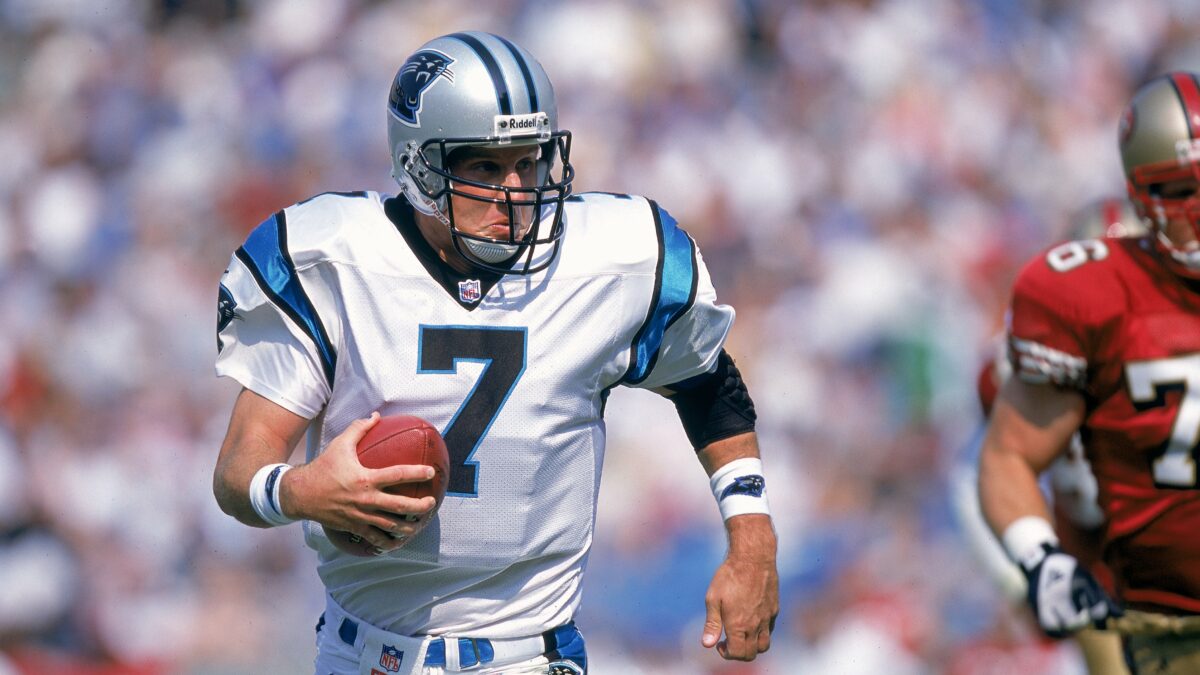
Beuerlein bounced around the league as a backup before landing with the Carolina Panthers in 1996 — where he backed up Kerry Collins. The latter struggled in 1998. He clashed with the team and was eventually let go as he dealt with off-field issues.
Beuerlein took over as Carolina’s starting quarterback in 1999, and he delivered big-time results. He finished with a 60.1 completion percentage and led the NFL with 4,436 passing yards while tossing 36 touchdowns against 15 interceptions.
Beuerlein’s Panthers missed the playoffs, but he did more than enough to earn the only Pro Bowl selection of his career. Beuerlein performed decently in the ensuing 1999 season, but he wasn’t even close to the dominant QB we saw a year earlier. He later joined the Denver Broncos in 2001 and stayed there for three years before retiring in the 2004 offseason.
7. Rex Grossman
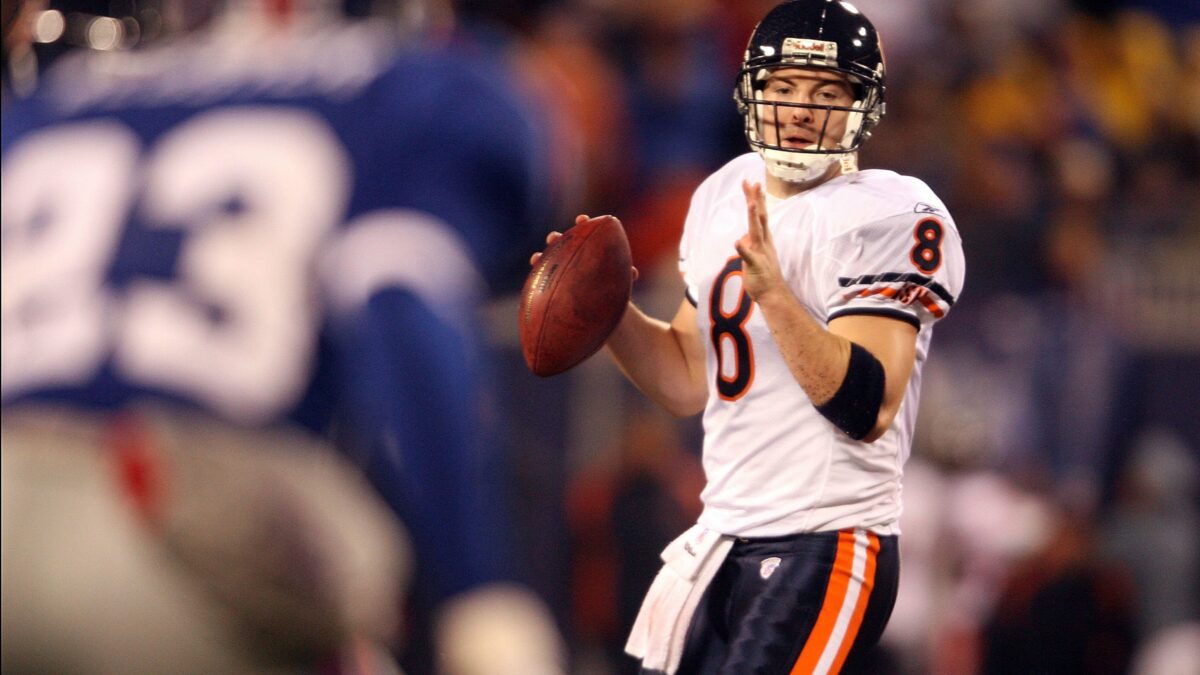
Grossman was the Chicago Bears’ backup in 2003 and ‘04, but an ankle injury forced him to miss most of the 2005 campaign. However, he recovered in time and helped the Bears win the NFC North — though they lost to the Carolina Panthers in the Divisional Round.
Grossman assumed the starting duties for the 2006 season and pieced together the best year of his career. He threw for 3,193 yards and 23 touchdowns, while adding 591 rushing yards and a trio of rushing TDs.
The Bears went 13 and 3 to earn the top spot in the NFC, and they advanced to Super Bowl 41 against the Indianapolis Colts. But Grossman struggled in a rainy and sloppy contest; passing for just 165 yards and one TD against two interceptions. The Colts won 29 to 17, and Grossman would never regain hit that level of play again.
Grossman spent two more years in Chicago before landing in Houston for the 2009 season. He spent three years with the Washington Redskins and last played in the 2012 season.
6. Tommy Maddox
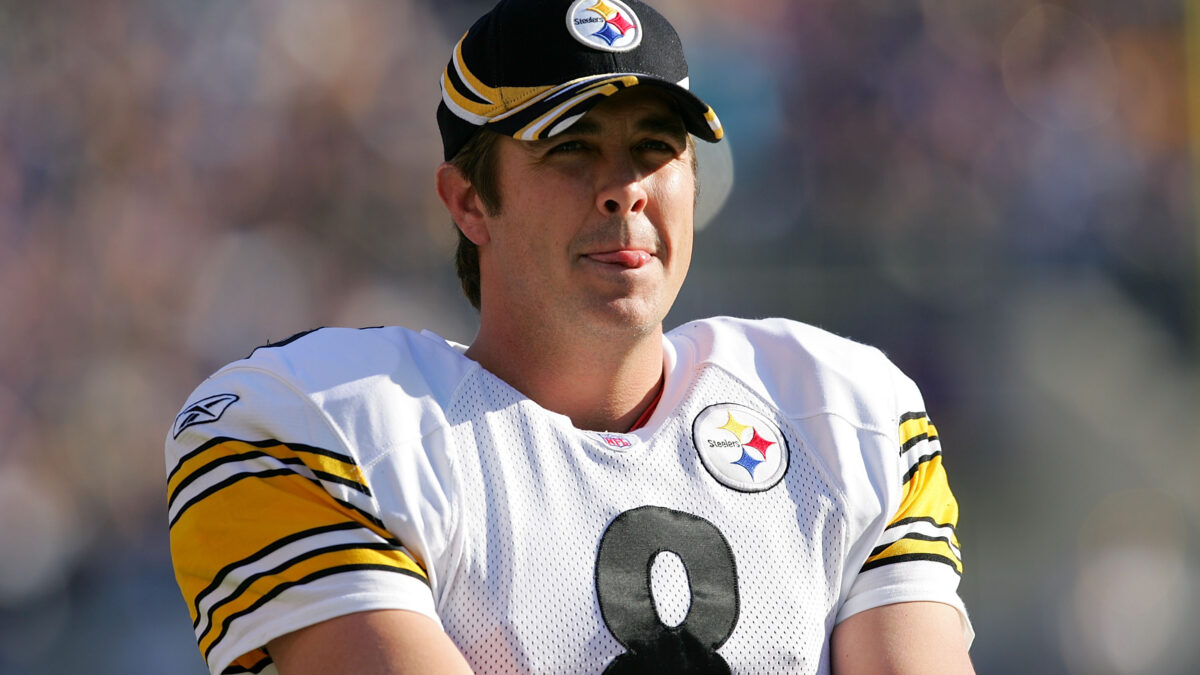
The Pittsburgh Steelers were unable to get over the hump with Neil O’Donnell and Kordell Stewart as their quarterbacks in the ‘90s. Career journeyman and backup QB Tommy Maddox joined the Steelers in 2001 and became their starter one year later.
In 2002, Maddox completed 62.1 percent of his passes for 2,836 yards and 20 touchdowns while adding 633 rushing yards and five touchdowns. The Steelers finished 10-5-and-1 and reached the postseason, falling to the Tennessee Titans in the Divisional Round.
But Maddox struggled mightily in the 2003 season, and the Steelers wound up taking Ben Roethlisberger with their first-round pick in 2004. He became the starter in his rookie year, but Maddox DID win a Super Bowl 40 ring as Big Ben’s backup in the 2005 season.
Maddox worked out for the Oakland Raiders and Dallas Cowboys in 2006 but was never signed by either team, and he retired soon after.
5. Greg Cook
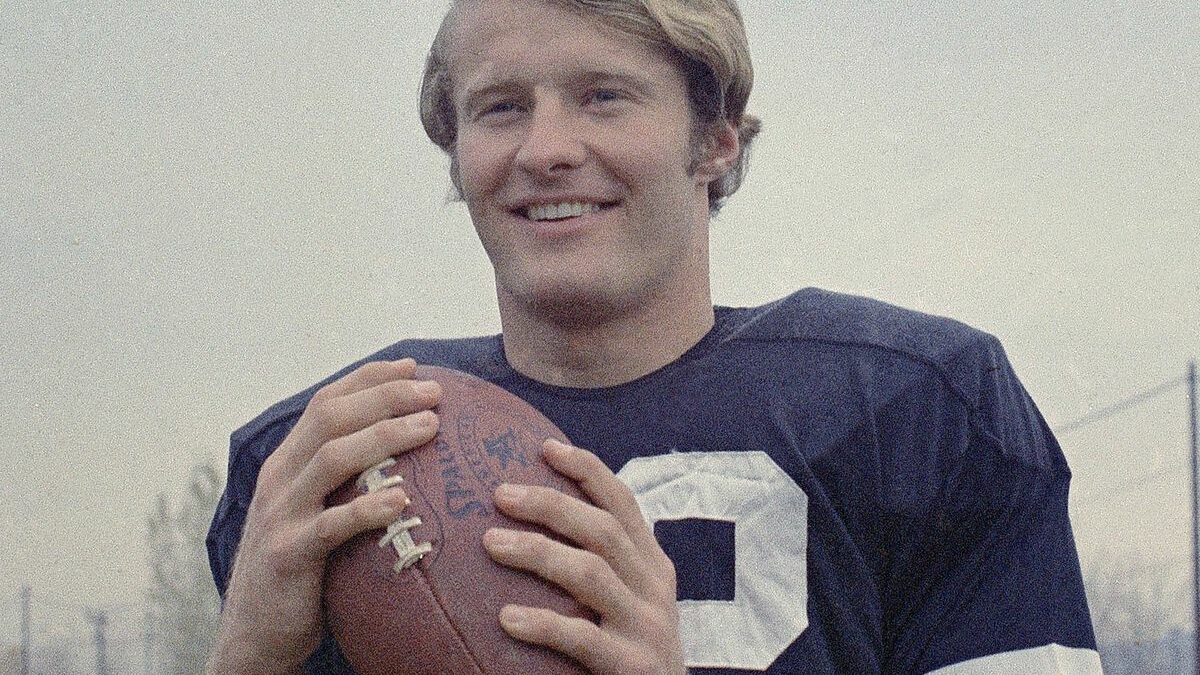
The Cincinnati Bengals drafted Cook fifth overall in 1969, and he pieced together a tremendous rookie season under legendary head coach Paul Brown. Cook threw for 1,854 yards and 15 touchdowns against 11 interceptions — and it was enough for him to earn the AFL Rookie of the Year Award.
But Cook suffered a torn rotator cuff injury that doctors never caught. Some blame the fact that technology wasn’t strong enough at the time to diagnose such an injury. So Cook continued to play through it, but it got worse and worse over time.
The injury forced Cook to retire after such a promising rookie season, and everybody was left wondering what could have been. Cook came back in 1973 in hopes of reviving his career, but it was all for naught. Cook stayed retired for good and never got the chance to build off his 1969 season.
Who knows how far the Bengals could have gone if Cook’s shoulder didn’t betray him?
4. Mark Rypien
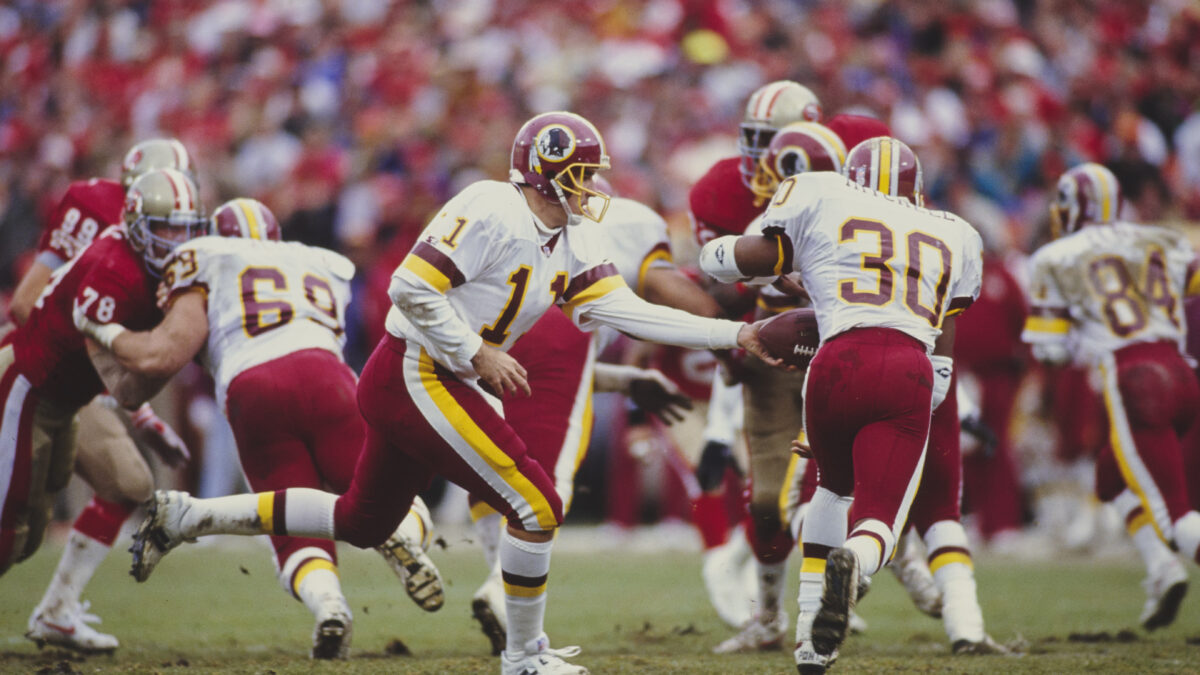
The Canadian-born Rypien was a backup to Doug Williams when the latter guided the Washington Redskins to a Super Bowl 22 championship.
Rypien started six games in 1988 and performed well, taking over for Williams as the Redskins’ starter in 1989. Two years later, Rypien had one of the greatest quarterback seasons ever seen at the time.
In 1991, Rypien led Washington to a 14-and-2 record after throwing for 3,564 yards and 28 touchdowns while adding 690 rushing yards and four rushing touchdowns. Rypien led the Redskins to a Super Bowl 26 victory over the Buffalo Bills, and he was named the big game’s MVP. And he earned a Pro Bowl selection that same season, too!
Rypien never came close to repeating those numbers, but hey! One Super Bowl ring and an MVP award is better than nothing, right?
3. Don Majkowski
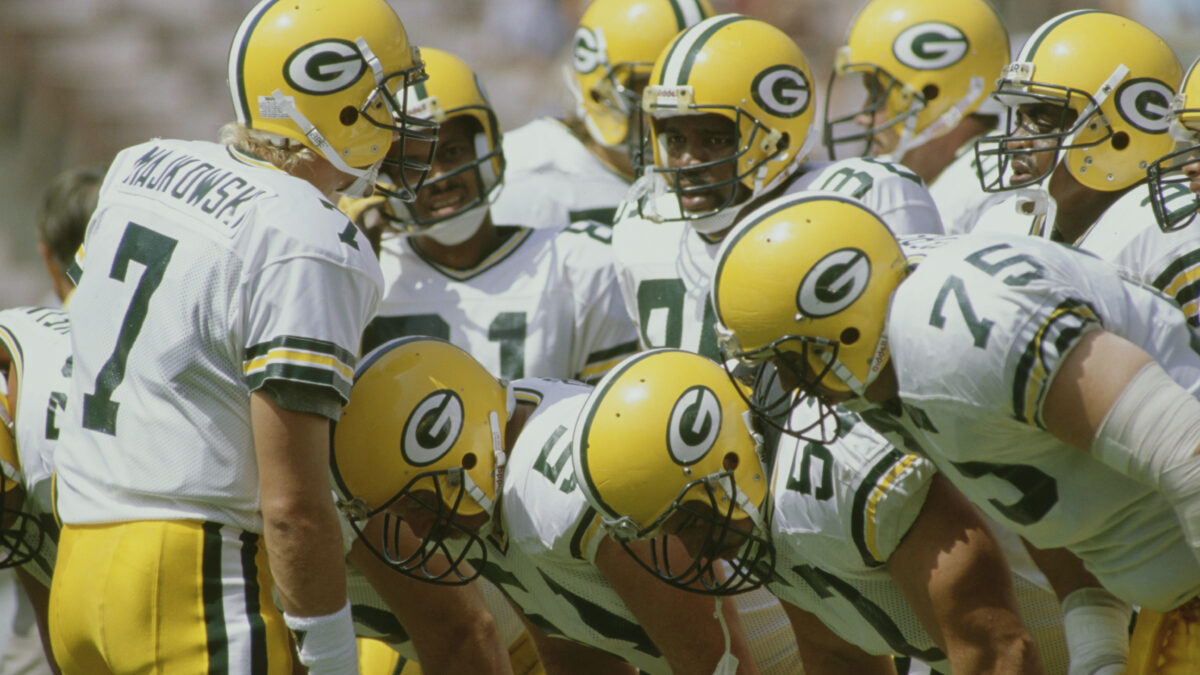
The Green Bay Packers drafted Majkowski in the 10th round back in 1987, and he finally had a breakout year in 1989. Majkowski completed 58.9 percent of his passes for a league-leading 4,318 yards and 27 touchdowns against 20 interceptions.
Majkowski led the Packers to a 10-win season, but they fell just short of ending a seven-year playoff drought. Majkowski also earned what would be the only Pro Bowl selection of his career.
Majkowski would struggle in each of the next two seasons, and he suffered a brutal ankle injury in Week 3 of the 1992 campaign against the Cincinnati Bengals. Some dude named Brett Favre stepped in as the starter, and the rest was history. Favre never lost the starting duties and wouldn’t miss a game through the remainder of his tenure with the Packers — which lasted until 2007. Majkowski had brief stops in Indianapolis and Detroit but was out of the NFL after the 1996 season.
2. Robert Griffin III
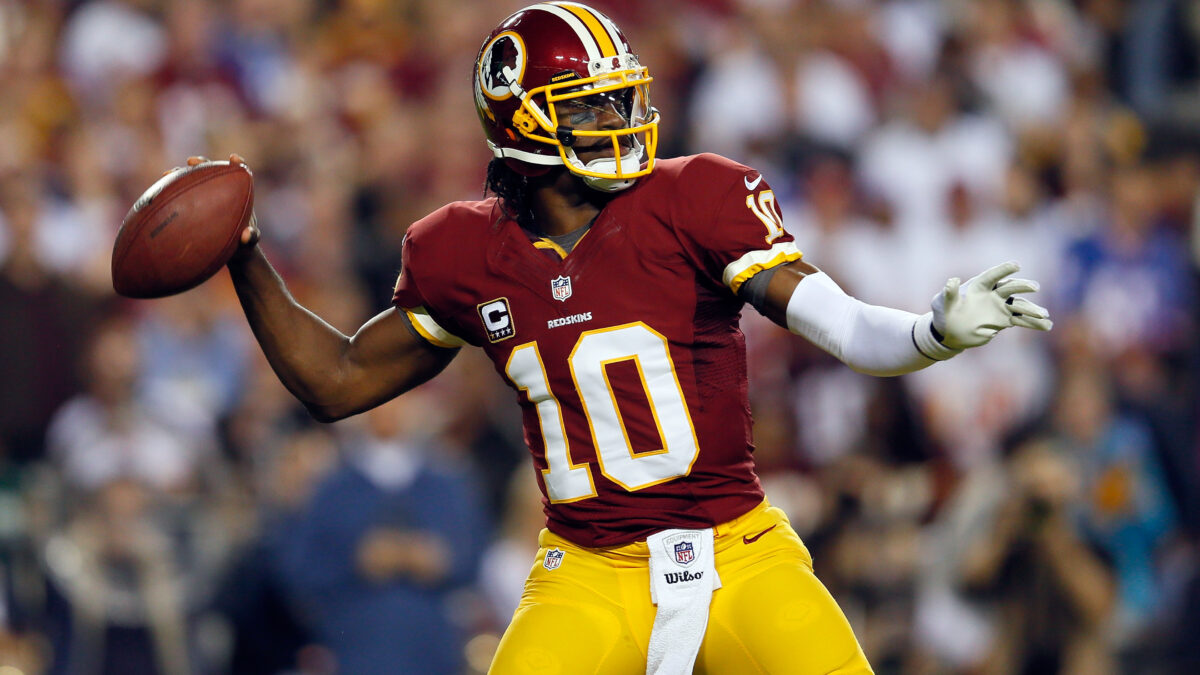
The Redskins surrendered a bundle of picks to the St. Louis Rams in order to obtain the No. 2 pick in the 2012 draft. The Indianapolis Colts took Andrew Luck first overall, thus allowing the Redskins to take Heisman Trophy winner Robert Griffin III with their pick.
Griffin pieced together one of the greatest rookie seasons ever – with 3,200 passing yards and 20 touchdowns against just five picks. The dual-threat QB added a whopping 815 rushing yards and seven rushing touchdowns as well — leading the Redskins to an NFC East division title.
But the Redskins coaching staff was careless with RG3, and they had him play despite not receiving medical clearance from Dr. James Andrews. Griffin severely injured his knee again in their playoff loss to the Seattle Seahawks, and he had to undergo offseason surgery.
RG3 earned a Pro Bowl selection, and he was named Offensive Rookie of the Year. Unfortunately, he struggled in his 2013 sophomore season, and injuries prevented Griffin from ever regaining that star-like form. Kirk Cousins and Colt McCoy eventually started in place of RG3, who was released by Washington in 2016. Griffin then found backup gigs for the Cleveland Browns and Baltimore Ravens.
1. Derek Anderson
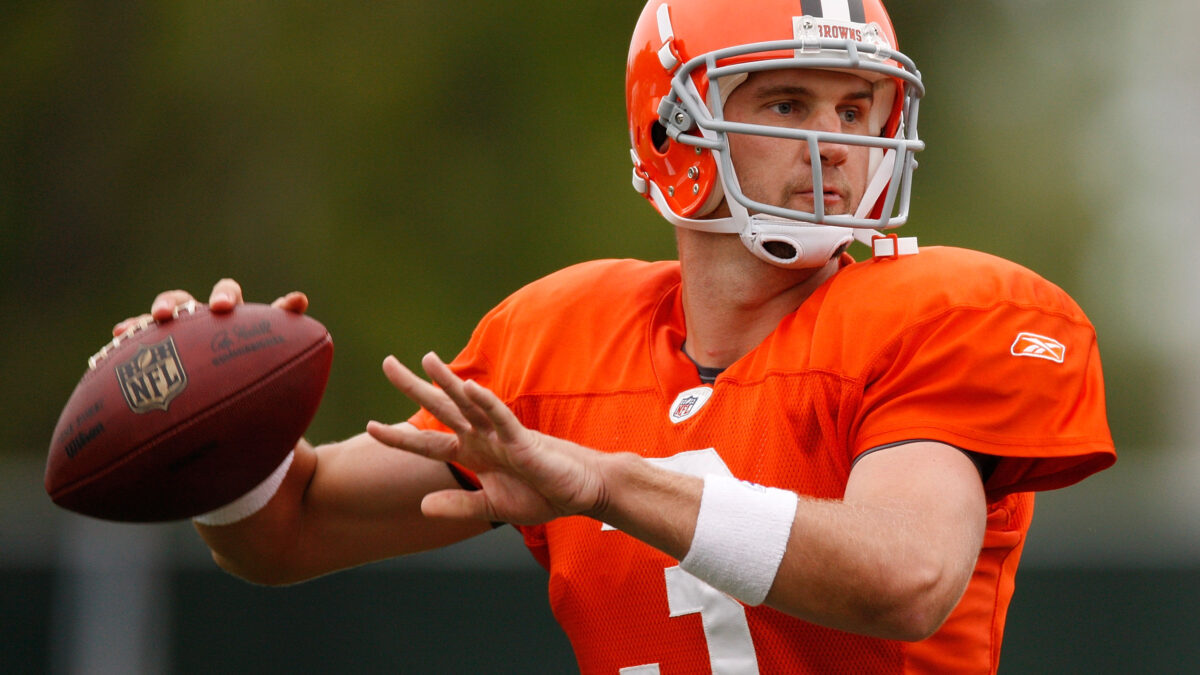
The Baltimore Ravens drafted Anderson in 2005, but he never played a game for them and wound up joining the Cleveland Browns. He saw little playing time in 2006, but Anderson won the starting gig for the 2007 season.
Anderson pieced together a strong year, with 3,787 yards and 29 touchdowns. He led the Browns to a 10-win season, but they lost the wild card tiebreaker to the Tennessee Titans. Still, the future was supposedly looking up in Cleveland. Oh, and Anderson earned a Pro Bowl selection!…
But that was it.
Anderson and Brady Quinn would split the starting duties in 2008 and ‘09, as both struggled mightily. Anderson would spend the remainder of his career as a backup — making stops in Arizona, Carolina and Buffalo, before retiring in 2019.
What other NFL quarterback one-year wonders should we have included on our list?























